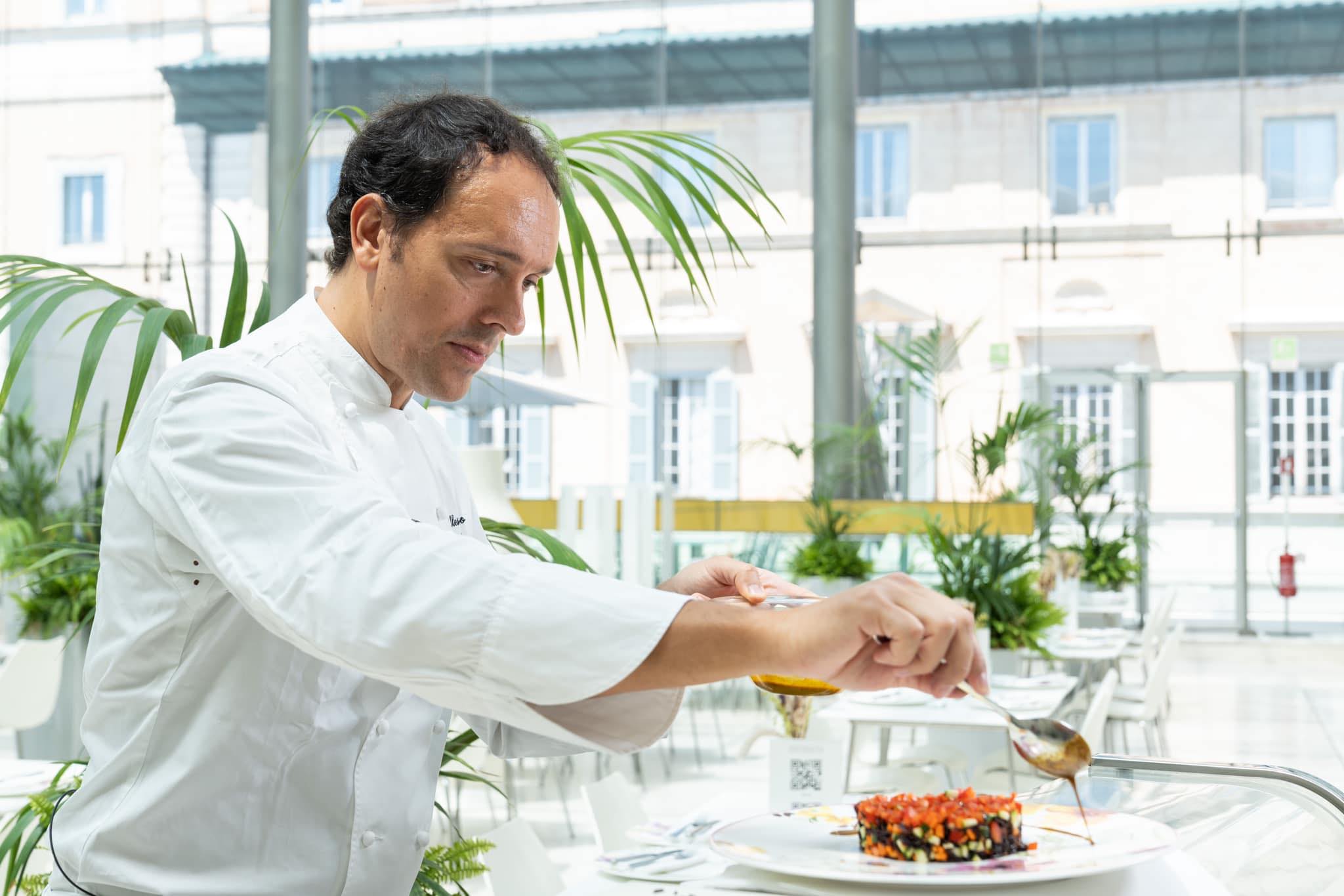Circiello started his career in the hospitality sector, working in various luxury hotels in Rome, including the Lord Byron Hotel, and internationally in renowned restaurants such as Au Crocodile in Strasbourg, a three Michelin-starred restaurant. He combined his culinary talent with a unique dedication to promoting proper nutrition, becoming a consultant for numerous companies and participating in events sponsored by institutions such as the Presidency of the Council of Ministers and the Rome City Council. Circiello spoke at the recent meeting dedicated to Made in Italy excellence held in Rome. In his speech, he discussed Italian quality food and the food and wine products of the beautiful country. We privately consulted him on some issues not only related to the gastronomic excellence of Made in Italy but also to express his opinion on the candidacy of Italian cuisine as an intangible UNESCO heritage.
Alessandro, you extensively promote our gastronomic heritage abroad. How is quality Italian food perceived overseas?
Italian food is highly appreciated abroad. Our products are genuine, tasty, flavorful, and distinct from all other cuisines. They are also incredibly healthy when prepared with the proper care. The combination of all these elements, especially the products’ taste, represents what we manage to communicate and properly promote. It’s also worth noting that “Made in Italy” is greatly appreciated in Italy itself. An excellent product may have higher costs compared to the average, but everything is justified by its quality and taste. We are talking about fruits, vegetables, plants, and legumes, able to showcase our distinctive biodiversity.
It’s been a remarkable decade for Italian cuisine. Has the communication and perception of our cuisine improved in the last decade?
It’s an exciting time for us. We take pride in our top-notch products and authentic, high-quality cuisine, setting us apart.

As the Italian Federation of Chefs, you are promoting our cuisine internationally. What are your future goals, specifically regarding the UNESCO candidacy?
In recent months, we have undertaken six initiatives to promote the UNESCO candidacy. The UNESCO list already includes international cuisines such as Mexican, Vietnamese, and French. All these cuisines are tasty and unique, so why can’t ours be part of it? Italian cuisine is still missing from this list, so it is crucial to obtain this recognition because it helps promote our tourism, which is related to food, wine, and healthy eating.
Indeed, can Italian food be a powerful draw for tourists, a catalyst, and an “ingredient” for economic growth?
Italian products play a crucial role in driving food and wine tourism, benefiting restaurants, and the economy, and supporting our excellent product producers.

